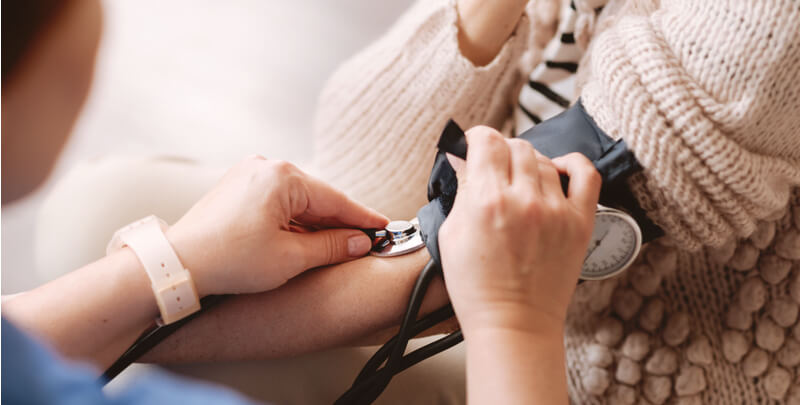Can I keep my French bank account if I move abroad?
Can I keep my French bank account if I move abroad? Find out everything you need to know here in our handy guide.

France is known for its universal and excellent standard of healthcare. It is regularly rated as the top healthcare system in the world. This is great news for those looking to relocate permanently or vacation in France.
This article gives a brief overview of the healthcare system in France, along with what you need to know about the country’s mandatory insurance requirements. It’ll cover how to find doctors and specialists, and what to do in case of an emergency.
Money in France is denominated in the euro, and can be written as EUR in global trading markets or simply as €. Other quick statistics on the French healthcare system:
The worth of your home currency can change each day, since the global exchange market fluctuates. To take out the guesswork, you can always use an online currency converter to check the exact value of your money.
At the time of writing, these are the very approximate figures you can expect to find:
France has universal healthcare that is mandatory for all citizens, whether they’re employed or not. Healthcare is managed across the country by the Ministry of Health. The government coverage scheme is administered through the French Social Security office where 70% of services are covered for all typical health care needs, including general practitioners, hospitals, dentists, and pharmacy costs. For seniors who are 65 or older, or individuals with chronic illnesses, the services are fully covered.
To pay for additional services like chiropractors or long-term care at private hospitals, or to cover the remaining 30% of the basic care, individuals can purchase private insurance. They can either pay for it out-of-pocket, or in some cases an employer will cover the extra amount. Here are some common costs for frequently-performed treatments in France:
| Medical Treatment | Fee | Percent reimbursed | Patient charge before co-insurance |
|---|---|---|---|
| Generalist consultation | €23 | 70% | €6.60 |
| Specialist consultation | €25 | 70% | €7.50 |
| Psychiatrist consultation | €37 | 70% | €11.10 |
| Cardiologist consultation | €49 | 70% | €14.17 |
| Filling a cavity | €19.28–€48.20 | 70% | €5.78–€14.46 |
| Root canal | €93.99 | 70% | €28.20 |
| Teeth cleaning | €28.92 | 70% | €8.68 |
| Prescription medicine | Varies | 35–100% | Varies |
| 30 Ibuprofen, 200 mg each | €2.51 | 60% | €1 |
France also requires all foreigners or long-term visitors to have health coverage. Provided under its government-funded Protection Universelle Maladie (PUMA), health coverage is a mandatory and guaranteed right for all who live in France in a “stable and regular” manner for at least 3 months. This coverage isn’t dependent upon employment and provides access to the typical health insurance that all French citizens receive.
If you’re relocating to France and moving money between countries, you might want to use a Wise borderless multi-currency account to help you manage those healthcare costs. The Wise borderless account allows you to receive and organise your money without the unfair international bank fees and poor exchange rates. You can hold and manage money in tens of different currencies, including the euro, and, for a small, fair, upfront transfer fee, you can send money to more than 50 countries, all while getting a fair exchange rate - the same one you find on Google.
France has a universal healthcare system. It’s managed by the government and supplemented by private insurers. Anyone living in France needs to obtain a basic level of health insurance through the French Social Security office. You can choose to add additional coverage from a private French insurance provider.
Coverage for all French residents is mandatory. The social security system covers 70% of the cost of treatment. All citizens pay into the state’s health insurance system. It’s managed by 3 main funds. Rates are regulated by law, and rates must charge a percentage of someone’s earned income.
One thing that makes the French system wonderful is that long-term medical problems are 100% covered by the state. Otherwise, patients will pay a doctor or dentist fee and then have a proportion reimbursed. Further reimbursements occur when an individual pays into a health insurance scheme. All workers are entitled to company subsidized plans. That means that healthcare in France is some of the most subsidized and affordable in the world.
French residents are allowed to subscribe to a mutuelle, a non-profit insurance plan, or a private plan to receive additional coverage. Often, this private care can fill in the gap where individuals are expected to pay a co-pay or want to receive elective treatments. If a worker is employed, they will automatically be covered by a plan where their company pays at least half of the additional cost.
To sign up for the healthcare system in France, follow these steps:
For people born outside of France, register for a social security number at your local Caisse Primaire d'Assurance Maladie (CPAM) or health insurance office
Register for the national health card, a carte vitale (green card) at the same local office
Register for a local doctor in your neighbourhood
You don’t need to be signed up for a general practitioner (GP) in order to be treated in case of an emergency. If an emergency strikes, just go to the emergency room (les urgences)
For medical aid within France, you can call 15 - the Service d’Aide Médical d’Urgenc**e (SAMU). There are more than 100 SAMU call centres across the country that are linked to local hospitals. Trained doctors and medics are usually on staff. When they receive a call they will either send a medic, organise transport to a hospital or give medical advice by phone. There’s no public ambulance service, so transport is arranged through private ambulance services or fire and rescue services. You shouldn’t expect to pay those costs though, they’re covered through social security.
You can also call 112, which is the free international European emergency number from any phone. The average wait time to be seen by a doctor in the emergency room is only 10 minutes. Patients are sent home in an average of 2 hours.
France has both state and private hospitals (cliniques). Your doctor can refer you to either one, and there’s generally no difference in the type or speed of service. You should be able to go to get an appointment with any GP during their working hours.
Hospitals are state-owned, and are regulated to be not-for-profit. Cliniques can either be non-profit or for-profit. The non-profit cliniques are usually operated by charities or religious organisations, and for-profit practices can specialise in certain disciplines. For-profit cliniques can charge more than the heavily-regulated state-owned facilities. Services offered at cliniques are not always as standardised as hospitals.
However, no matter where you go, the reimbursements should be the same. At all hospitals in France, the general procedure is to pay up front, file your claim, and then get reimbursed. The state sets fee baselines that guide medical costs. These baselines determine the rate at which patients are reimbursed.
In large cities, it’s fairly easy to find an English-speaking general practitioner, specialist, or dentist. Dentists are always covered by the national health service, but they have different reimbursement rates and fees. All basic dental work tends to be treated as specialist healthcare treatment. More complex operations might be reimbursed at lower rates.
You’ll need to register ahead of time to visit your local doctor. You’re allowed to choose any doctor you want and you can look up a doctor on the French health insurance directory. Once you’ve chosen a doctor, make sure that you and the practitioner fill out the Déclaration de Choix du Médecin Traitant form and send it to your CPAM office.
Many practices offer house calls and after-hours calls, but do so at a higher prices. You’re also likely to find doctors that speak English or at least are willing to offer translation services for an extra fee. French residents can choose any GP they’d like and register with him or her. Only the doctor with whom they’re registered is authorised to refer them on to specialists or other providers for further care.
You must be referred by your local doctor in order to see a specialist. Without a GP’s referral, you’ll have to pay a larger co-pay for the specialist. However, you don’t need a referral to see a gynaecologist, paediatrician or ophthalmologist. If you’re under 26 and need to see a psychiatrist, you don’t need a referral. Specialists might charge a higher fee than family doctors since they can either be private or state-affiliated.
France mandates that all citizens and long-term visitors have at least basic government-funded health coverage. If an individual would like additional coverage, there are private insurance plans available, which are tightly regulated for quality of the coverage. In general, French healthcare is very reasonable.
The French-funded health coverage is considered one of the best in the world. Most all health costs, including specialists and dentists, are covered up to 70% and hospital visits up to 80%. Pharmacy costs can range from 15% to 100% depending on your needs. For those over 65, under 16, with low-income or with chronic illnesses, almost all costs are covered at 100%.
If you don’t have a carte vitale, you can fill out a treatment form or feuille de soins to send to your local social security office. You should expect the 70% reimbursement within five days. For each consultation, you’ll also have to pay a participation forfaitaire, or fee, of €1. Co-pays tend to be quite small; frequently they fall below €10 for basic services.
The most popular private companies to supplement the public healthcare system are:
If you’re staying in France for more than 3 months, you can register for French healthcare via your local sécurité social or CPAM office. If you’re just visiting, you might want to take out private insurance from a local or expat health insurance company, or just make sure your travel insurance has a medical component. Temporary visitors with a European Health Insurance Card (EHIC) card have automatic access to state healthcare in France.
If you find yourself in need of medical assistance, you might find these terms useful when you’re in France:
| Medical term | French translation |
|---|---|
| accident | accident |
| ambulance | ambulance |
| broken bone | os cassé |
| dentist | dentiste |
| doctor | médecin |
| emergency | urgence |
| heart attack | attaque cardiaque |
| hospital | hôpital |
| medical bill | facture médicale |
| medical insurance | assurance maladie |
| pharmacy | pharmacie |
| prescription | ordonnance |
| stroke | accident vasculaire cérébral |
If you have a healthcare-related question, the following links might be helpful to you:
France is a great choice if you are considering a relocation abroad. There is world-class care and extensive coverage. The regulations in place will protect you from facing large charges in the face of an unforeseen medical emergency. This guide will help ensure you get the healthcare coverage you need when you’re there.
*Please see terms of use and product availability for your region or visit Wise fees and pricing for the most up to date pricing and fee information.
This publication is provided for general information purposes and does not constitute legal, tax or other professional advice from Wise Payments Limited or its subsidiaries and its affiliates, and it is not intended as a substitute for obtaining advice from a financial advisor or any other professional.
We make no representations, warranties or guarantees, whether expressed or implied, that the content in the publication is accurate, complete or up to date.

Can I keep my French bank account if I move abroad? Find out everything you need to know here in our handy guide.

Read our helpful guide on how to transfer a UK pension to France, including the steps, fees and taxes involved.

A guide to the French residence permit, covering who can apply, how to apply, how it works and costs.

Have a look at our complete guide to selling your property in France, including the process, fees, taxes and more.

Everything you need to know about healthcare in France for British pensioners, including your rights to state healthcare and how to register.

Everything you need to know about moving to France from the UK, including visas, post-Brexit changes, cost of living and more.